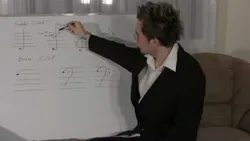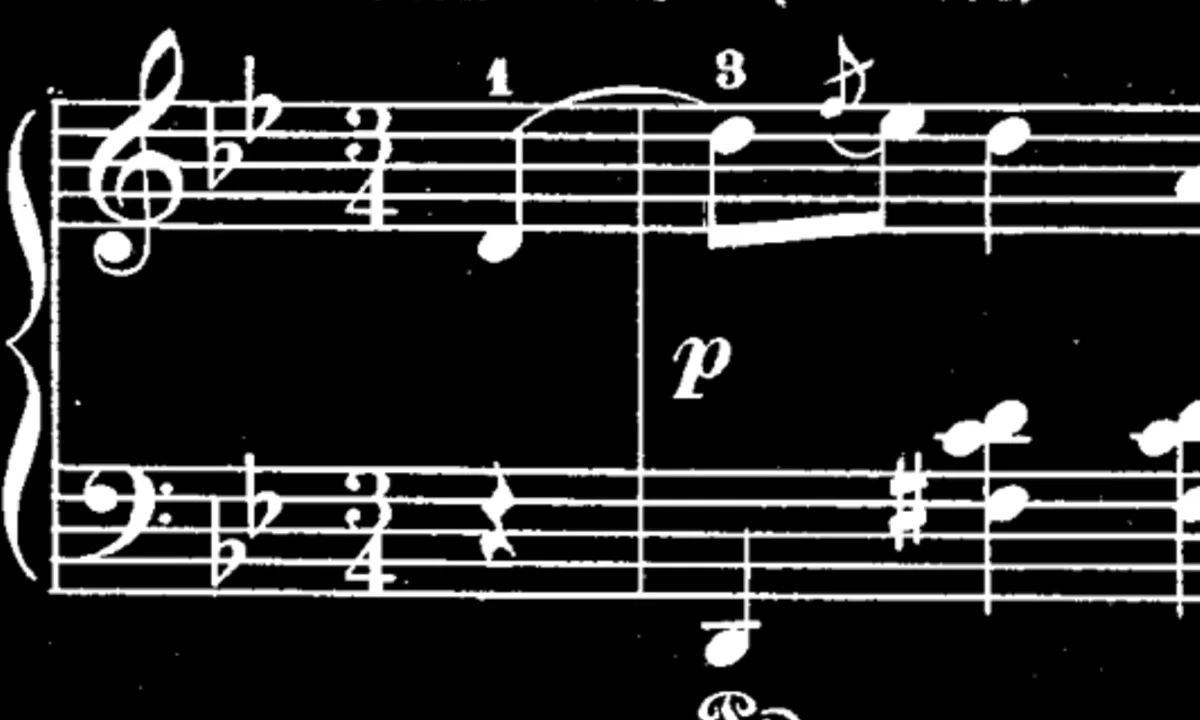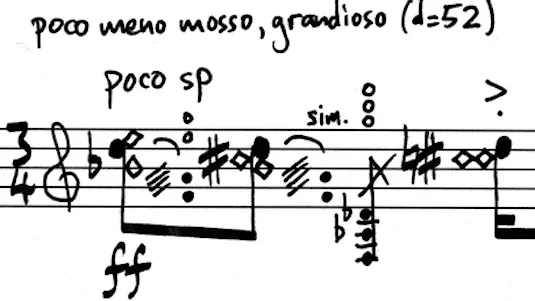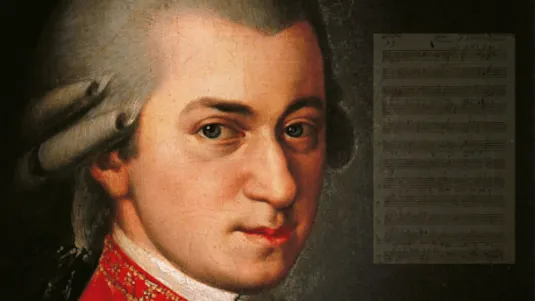Free Online Music Theory Courses and Certifications 2024
Music Theory is the study of the language and notation of music. It is a fundamental part of music education, and is suitable for musicians, music teachers, and musicologists. Courses in Music Theory cover topics such as harmony, counterpoint, and form. It is also useful for composers, arrangers, and performers.
Popular Courses
Get a comprehensive overview of Loop: Repetition and Variation in Music
Learn MoreThis course provides an introduction to understanding musical scores, offering insight into how professional musicians interpret and use the notation. It is free and open to all.
Learn MoreCreate a professional music website with the help of HTML and CSS. Gain the skills to design and develop a website from scratch.
Learn MoreGain an introduction to Learn Music Theory
Learn MoreThis course is designed for those with a passion for music and a desire to learn more about its fundamentals. It is perfect for musicians who have learned by ear and have no formal training, as well as those who wish to study music but are unsure of where to start. It provides an introduction to music theory, giving students the tools to understand and appreciate music.
Learn MoreThis six-week online course, developed by Juilliard faculty member Dr. Steven Laitz, provides a comprehensive introduction to the fundamentals of classical music theory. Through engaging and straightforward lessons, students will learn the basics of music notation, scales, chords, and more. With Music Theory 101, students will gain a better understanding of the structure and language of music.
Learn MoreThis course, part of the Developing Your Musicianship specialization from Berklee Online, is taught by Berklee College of Music professor George W. Russell, Jr. It covers intermediate level harmony and ear training, focusing on tensions, harmonic function, and modal interchange. Learners with a general understanding of music theory or who have completed the first two courses in the series will benefit from this course.
Learn MoreThis course provides a comprehensive overview of the fundamentals of music theory for those with limited or no prior knowledge. Topics include pitch, rhythm, meter, notation, scales, keys, key signatures, meter signatures, triads, seventh chords, and basic harmony. Perfect for those who want to learn more about how music is organized and notated.
Learn MoreLearn the basics of Fundamentals of Music Theory
Learn MoreBerklee College of Music professor George W. Russell, Jr. guides learners through the next level of harmony and ear training in the Developing Your Musicianship II course. This course is the second in the series, and covers topics such as chord charts, diatonic chords, and minor keys. Learners with a basic knowledge of music theory or who have completed Developing Your Musicianship I will benefit from the four lessons included.
Learn MoreThis course provides an introduction to classical music composition, exploring topics such as harmonic progression, voice leading, texture, repetition, variation, and elaboration. Students will gain an understanding of the strategies for style writing of common practice European art music, while also having the opportunity to explore their creativity within the restrictions of stylistic emulation.
Learn MoreThis course explores the fundamentals of music theory, including melodic forms and simple harmony. It provides an understanding of the technical and aesthetic details of music, and how to develop a meaningful theoretical vocabulary to discuss musical style. Students will gain an appreciation for music and its complexities.
Learn MoreThis course provides a comprehensive overview of the final project for the Developing Your Musicianship Specialization. It guides learners through the process of creating a musical composition, from concept to completion.
Learn MoreThis course provides teachers with the tools to confidently incorporate modern and contemporary art into interdisciplinary lesson plans. Through theme-based teaching practices, participants will develop critical skills to enhance their classroom instruction.
Learn MoreThis comprehensive course provides a thorough introduction to the fundamentals of music theory, perfect for those looking to get started in AP Music Theory. Learn the basics and get ready to ace the exam! This course is the perfect starting point for those looking to gain a comprehensive understanding of music theory fundamentals. With the help of this course, students can prepare to excel in AP Music Theory.
Learn MoreThis free course provides an introduction to the fundamentals of music theory and notation, including staves, clefs, rhythm, and pitch. Gain a comprehensive understanding of the basic building blocks of music.
Learn More Music Theory Courses
Career Trends
Career Prospects
| Average Salary | Position Overview
|
| Music Instructor | $28.45 per hour
| A music instructor is responsible for teaching students about music theory and facilitating various musical activities, such as singing, playing instruments, and analyzing musical works, depending on the age and skill level of the students. Music teaching positions can be found in various settings. |
| Music Therapist | $78,610 per year | Music therapists are highly trained, board-certified practitioners who work with a wide variety of individuals to help manage pain, reduce stress, express emotion, enhance memory, improve communication, and promote physical rehabilitation. |
| Piano Teacher | $39.76 per hour | Piano teachers offer piano lessons to individuals interested in learning to play the piano. They may work in schools or operate as independent contractors who travel to students' homes or conduct lessons from private studios. Piano teachers provide feedback on their students' progress, organize recitals, and prepare students for competitions. |
Educational Paths
1. Bachelor's Degree in Music Theory: This is a four-year program that focuses on music theory, composition, history, and performance.
2. Music Theory Courses: Many colleges and universities offer individual music theory courses that can be taken as part of a degree program or on their own.
3. Online Music Theory Courses: Several online platforms offer music theory courses for beginners, intermediate, and advanced learners.
4. Music Theory Workshops and Seminars: Various workshops and seminars are held throughout the year that cover specific topics in music theory, providing opportunities for musicians to expand their knowledge and skills.
Frequently Asked Questions and Answers
Q1: Where should music theory beginners start?
A great place to begin is by learning the basics of rhythmic note values, including rests and dotted notes, as well as pitches on the grand staff (treble and bass clefs combined). Additionally, it is important to understand accidentals (flats, sharps, and naturals), the Circle of 5ths, and key signatures. With a solid foundation in these topics, music theory beginners can then move on to more advanced concepts.
Q2: What is the basic theory of music?
Music theory is a practice that musicians utilize to comprehend and convey the language of music. The fundamentals of music are explored through the study of musical theory, which also offers a framework for interpreting musical compositions. For instance, the elements that constitute harmony, melody, and rhythm are defined by the principles of basic music theory.
Q3: Is music theory easy or hard?
Learning Music Theory is not inherently difficult. It is beneficial to have some experience playing an instrument, and the piano proves to be an excellent tool for learning due to its linear arrangement of notes.
Q4: How can I teach myself music?
One can definitely teach themselves by utilizing resources such as YouTube or instructional videos available online. Whether one aims to play the keyboard or acquire knowledge of chords for their band's singing sessions, online tutorials can effectively guide them towards their desired proficiency. Moreover, these resources can also facilitate the learning of fundamental music theory.
Q5: What Music Theory courses can I find on AZ Class?
On this page, we have collected free or certified 370 Music Theory online courses from various platforms. The list currently only displays up to 50 items. If you have other needs, please contact us.
Q6: Can I learn Music Theory for free?
Yes, If you don’t know Music Theory, we recommend that you try free online courses, some of which offer certification (please refer to the latest list on the webpage as the standard). Wish you a good online learning experience!
















